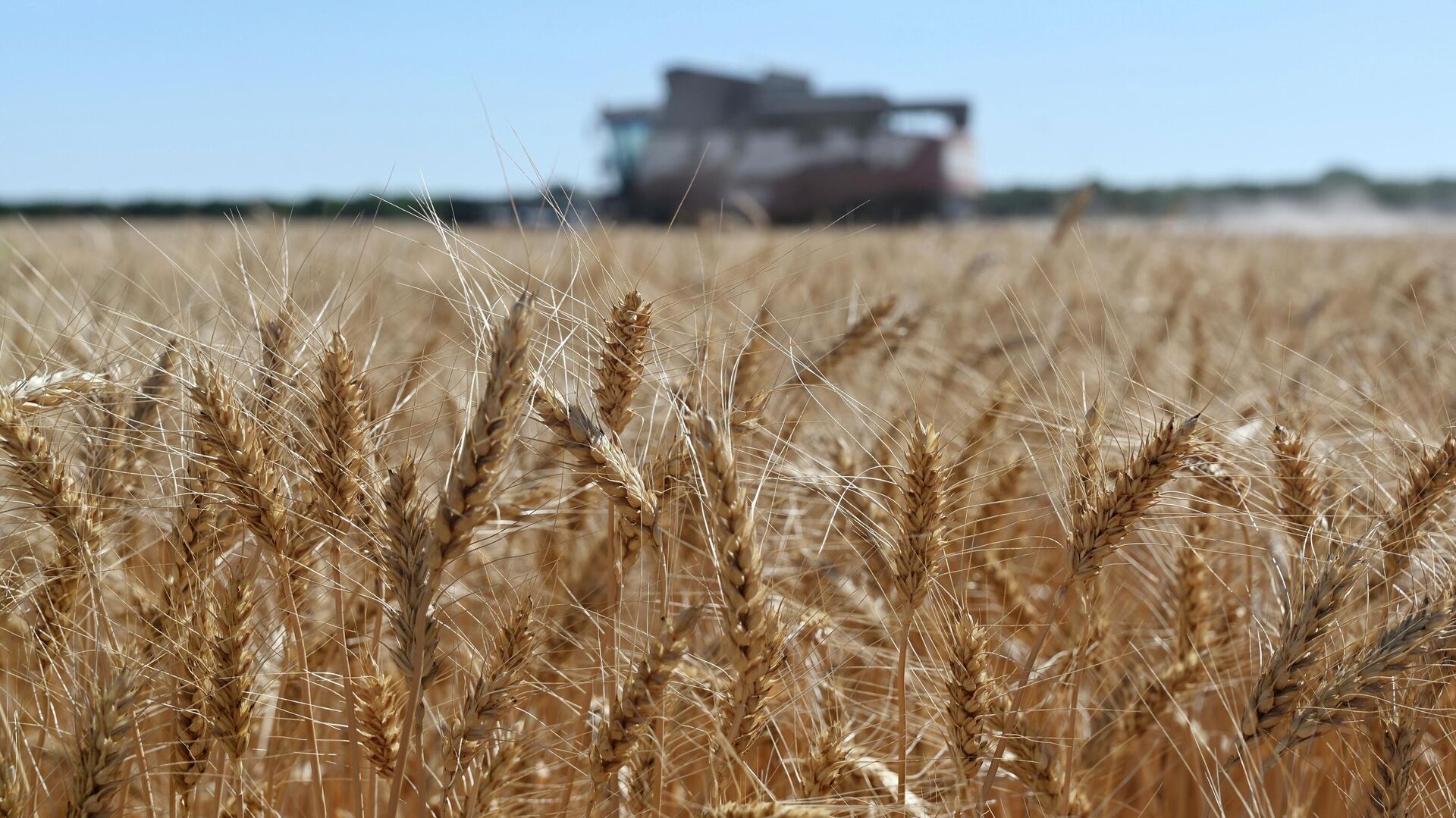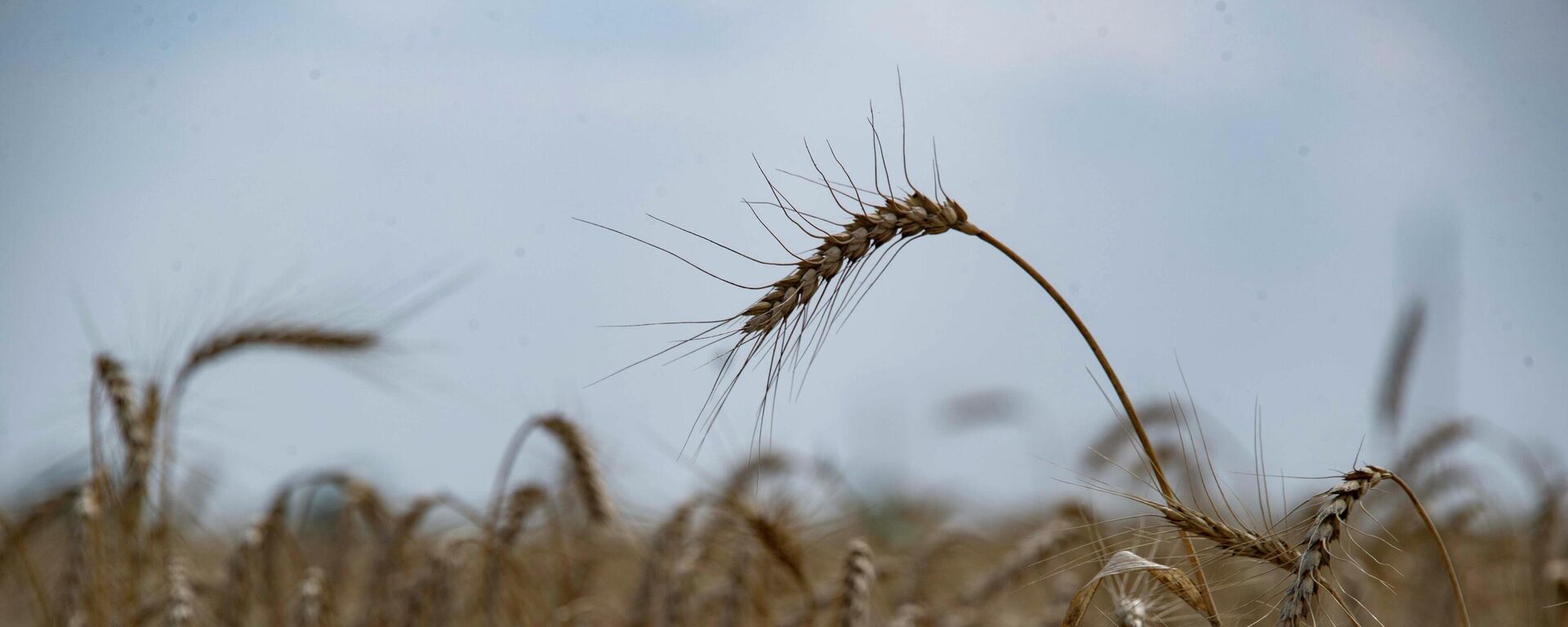https://sputnikglobe.com/20230417/unilateral-actions-unacceptable-eu-slams-poland-hungary-for-ban-on-ukraine-grain-imports-1109584200.html
'Unilateral Actions Unacceptable': EU Slams Poland, Hungary for Ban on Ukraine Grain Imports
'Unilateral Actions Unacceptable': EU Slams Poland, Hungary for Ban on Ukraine Grain Imports
Sputnik International
The Hungarian Agriculture Ministry said late last week that “the absence of meaningful EU measures” to protect the country’s farmers prompted Budapest to join Warsaw’s decision.
2023-04-17T08:09+0000
2023-04-17T08:09+0000
2023-04-17T08:09+0000
world
russia
ukraine
poland
hungary
european commission
european union (eu)
agreement
https://cdn1.img.sputnikglobe.com/img/07e6/09/0a/1100633252_0:159:3078:1890_1920x0_80_0_0_9a6221e13ee15486cd0dfc78f8f64a01.jpg
The European Commission has lashed out at bans introduced by Poland and Hungary on imports of Ukrainian grain and other foods over the weekend.A spokesperson for the European Commission said in a statement on Sunday that such a trade policy was a matter of “EU exclusive competence,” making it clear that only the bloc could adopt legally binding decisions.This came after Hungary’s agriculture ministry said on Saturday that "in the absence of meaningful EU measures," the country would follow Poland in restricting Ukrainian grain imports until the end of June.Earlier that day, Poland’s Minister of Economic Development and Technology Waldemar Buda announced that Warsaw had banned imports of Ukrainian agricultural products of both plant and animal origin until June 30. The official specified that the ban covers grains, sugar, fruits and vegetables, wine, many types of meat, milk and dairy products, among other items.Bulgarian Agriculture Minister Yavor Gechev has, meanwhile, said that his country is mulling the possibility of introducing a temporary ban on grain imports from Ukraine, following the lead of Poland and Hungary.In late March, the prime ministers of Bulgaria, Hungary, Poland, Romania and Slovakia published a joint open letter to European Commission President Ursula von der Leyen, calling for measures to counteract the negative effects of the increased Ukrainian grain imports. Since early February, several Polish farmers' organizations have been campaigning against the imported Ukrainian grain, primarily of poor quality, which was flooding the Polish market and damaging local production. This followed the EU lifting tariffs on Ukrainian grain last year to help transport it to the rest of the world, but the exports have led to an abundance of produce in Europe. As a result, farmers in Poland, Hungary and other EU countries have seen their incomes plummet.The package agreement also includes a memorandum of understanding between Moscow and the UN to unblock Russian grain and fertilizer exports via the Black Sea. In March, Russia extended the deal for 60 out of a possible 120 days.The Kremlin has repeatedly criticized the grain deal for failing to ensure unimpeded exports of Russian grain and fertilizer amid the US-led Western sanctions slapped on Moscow over its ongoing special military operation in Ukraine.Putin has more than once castigated the implementation of the deal, noting that most of grain goes to Europe rather than the Global South. "Almost 45% [of grain] have been delivered to well-fed European countries, despite the fact that this deal stipulated that we need to ensure the interests of African countries," the Russian president told a parliamentary conference last month.
https://sputnikglobe.com/20230314/russia-negatively-assesses-kievs-proposal-to-expand-grain-deal-1108396208.html
russia
ukraine
poland
hungary
Sputnik International
feedback@sputniknews.com
+74956456601
MIA „Rossiya Segodnya“
2023
Oleg Burunov
https://cdn1.img.sputnikglobe.com/img/07e4/09/0b/1080424846_0:0:2048:2048_100x100_80_0_0_3d7b461f8a98586fa3fe739930816aea.jpg
Oleg Burunov
https://cdn1.img.sputnikglobe.com/img/07e4/09/0b/1080424846_0:0:2048:2048_100x100_80_0_0_3d7b461f8a98586fa3fe739930816aea.jpg
News
en_EN
Sputnik International
feedback@sputniknews.com
+74956456601
MIA „Rossiya Segodnya“
Sputnik International
feedback@sputniknews.com
+74956456601
MIA „Rossiya Segodnya“
Oleg Burunov
https://cdn1.img.sputnikglobe.com/img/07e4/09/0b/1080424846_0:0:2048:2048_100x100_80_0_0_3d7b461f8a98586fa3fe739930816aea.jpg
hungary, poland ban on ukraine grain imports, european commission's criticism of hungary, poland ban on ukraine grain imports, black sea grain initiative
hungary, poland ban on ukraine grain imports, european commission's criticism of hungary, poland ban on ukraine grain imports, black sea grain initiative
'Unilateral Actions Unacceptable': EU Slams Poland, Hungary for Ban on Ukraine Grain Imports
The Hungarian Agriculture Ministry said late last week that "the absence of meaningful EU measures" to protect the country’s farmers prompted Budapest to join Warsaw’s move .
The European Commission has lashed out at bans introduced by Poland and Hungary on imports of Ukrainian grain and other foods over the weekend.
A spokesperson for the European Commission said in a statement on Sunday that such a trade policy was a matter of “EU exclusive competence,” making it clear that only the bloc could adopt legally binding decisions.
"Unilateral actions are not acceptable," the statement pointed out.
This came after Hungary’s agriculture ministry said on Saturday that "in the absence of meaningful EU measures," the country would follow Poland in restricting Ukrainian grain imports until the end of June.
Earlier that day, Poland’s Minister of Economic Development and Technology Waldemar Buda announced that Warsaw had banned imports of Ukrainian agricultural products of both plant and animal origin until June 30. The official specified that the ban covers grains, sugar, fruits and vegetables, wine, many types of meat, milk and dairy products, among other items.
Bulgarian Agriculture Minister Yavor Gechev has, meanwhile, said that his country is mulling the possibility of introducing a temporary ban on grain imports from Ukraine, following the lead of Poland and Hungary.
"Bulgarian interests must be safeguarded, particularly when two of the countries react in this way. If we do not react in a similar manner, the accumulation [of Ukrainian grain] on Bulgarian territory may become even bigger," Gechev stressed.
In late March, the prime ministers of Bulgaria, Hungary, Poland, Romania and Slovakia published a joint open letter to European Commission President Ursula von der Leyen, calling for measures to counteract the negative effects of the increased Ukrainian grain imports.
Since early February, several Polish farmers' organizations have been campaigning against the imported Ukrainian grain, primarily of poor quality, which was flooding the Polish market and damaging local production. This followed the EU lifting tariffs on Ukrainian grain last year to help transport it to the rest of the world, but the exports have led to an abundance of produce in Europe. As a result, farmers in Poland, Hungary and other EU countries have seen their incomes plummet.
The developments unfold against the complicated situation around the so-called Black Sea Grain Initiative, signed between Moscow, Kiev, Ankara and the UN amid the conflict in Ukraine in July 2022, an agreement that provides for the exports of Ukrainian grain, food and fertilizers over the Black Sea from three ports, including Odessa.
The package agreement also includes a memorandum of understanding between Moscow and the UN to unblock Russian grain and fertilizer exports via the Black Sea. In March, Russia extended the deal for 60 out of a possible 120 days.
The Kremlin has repeatedly criticized
the grain deal for failing to ensure unimpeded exports of Russian grain and fertilizer amid the US-led Western sanctions slapped on Moscow over its ongoing special military operation in Ukraine.
Russian President Vladimir Putin, for his part, accused the West of only thinking about its own interests when it comes to the UN-brokered grain agreement, stressing that Russia pledged to do its best to ensure the interests of developing countries in terms of food supplies to their markets, including Ukrainian grain.”
Putin has more than once castigated the implementation of the deal, noting that most of grain goes to Europe rather than the Global South. "Almost 45% [of grain] have been delivered to well-fed European countries, despite the fact that this deal stipulated that we need to ensure the interests of African countries," the Russian president told a parliamentary conference last month.




